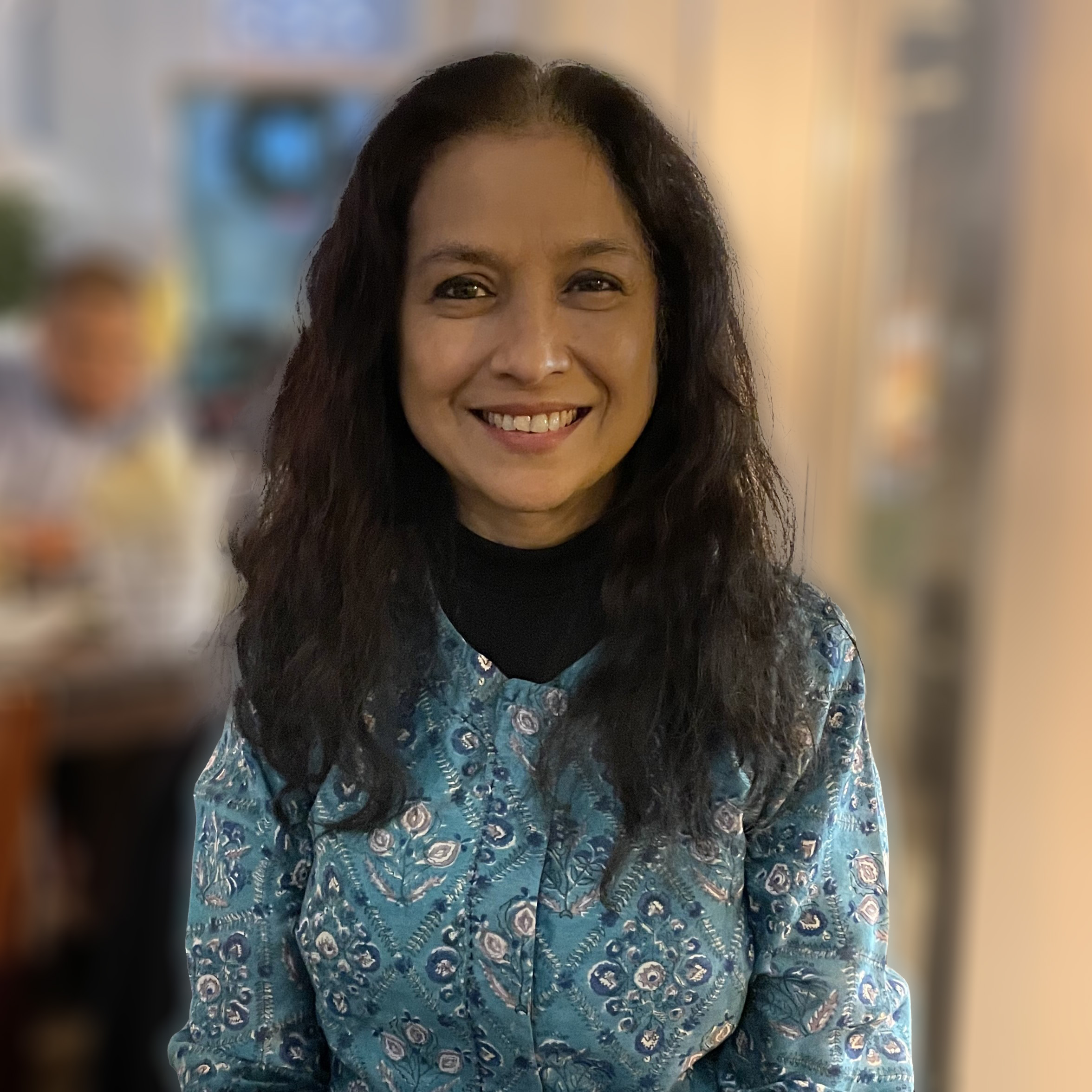Mitali Sen, SOCY Ph.D. ’00
Mitali Sen learned important life lessons during her time at the University of Maryland, lessons she hopes to pass along to graduating students at the Department of Sociology’s May 19, 2022 commencement ceremony.
The first can be tough, but important: Be adaptable.
Sen knows from personal experience. After coming from India to do a Ph.D. in organizational sociology, one month before she was set to defend her dissertation on the decline of the U.S. shoe industry, someone published a paper testing the exact same hypotheses with the data she was using.
“It was devastating. I had completed almost five years of graduate school and had only a few months left before my assistantship came to an end,” recalled Sen, who was at the time working closely with the professor that got her interested in applying to UMD, Prof. Jerald Hage. “But, I was very fortunate that I was also working simultaneously with Professor Reeve Vanneman and his former student, Dr. Douglas Barnes on a gender project at the World Bank. So I switched from organizational sociology to gender and development and studied the impact of access to electricity and water in women’s lives in India, analyzing women’s time-use data with Vanneman as my advisor.”
Sen went on to write her dissertation while serving as the 1998 Thoreau Teaching Fellow at the University of Maine, Orono, and earn not only her Ph.D. from the University of Maryland, but also a full-time consultant position at the World Bank.
By the time she began to yearn for a role that would allow her to more easily realize the real-world impact of her work, Vanneman and Professor Sonalde Desai asked Sen if she’d like to be the survey manager of their new research project: The India Human Development Survey (IHDS), a multi-topic, nationally representative survey that would gain insights into the well-being of men, women and children across India and over time on a host of socio-economic, educational, empowerment, health and other indicators.
Today, IHDS data is being used by both researchers and policymakers to create programs and policies that improve people’s lives.
“My experience with IHDS and its impact was the catalyst that lead me to my current position,” said Sen, Chief of the Technical Assistance and Capacity Building Branch of the U.S. Census Bureau’s International Programs Center. There, Sen and her team train low- and middle-income countries on how to conduct and analyze their own surveys and censuses, so that the data generated can glean similarly actionable insights.
Sen is also currently serving as the Chair of the United Nation’s Global Network of Institutions for Statistical Training (GIST), which focuses on delivering efficient, effective and harmonized training in official statistics.
“Sociology helps you understand how complex anything is when it comes to systems and structures, and how important systems and structures are in the lives of people,” she said. “Understanding context, where people come from, and exclusion/inclusion are really important in any line of work, but more importantly in trying to develop a country or bring about change in large-scale systems.”
Those skills play into the second, sweeter lesson UMD helped show Sen: How to maintain lifelong friendships.
Though they hail from various religious and cultural backgrounds, Sen and 12 of the women who were pursuing UMD graduate degrees in sociology with her have remained close friends for multiple decades now, sharing in marriages, divorces, children, and even broken bones. When Sen broke her leg in 2014, the “Covergirls”—the name the group gave themselves after starting a book club in 2004—developed an Excel spreadsheet to sign up to help Sen heal and navigate her College Park home for the three months it took to get back on her feet.
The group has even kept in touch with its faculty mentors, including Vanneman, Desai, and Professor and BSOS Associate Dean for Faculty Affairs Patricio Korzeniewicz, among others.
Now, thinking back to how she felt in the days leading up to her own graduation, and how much the world has changed since then, Sen says, “These graduates are coming of age at a time when things are changing much, much faster than when I grew up. They are going to be in situations where they need to be quick footed and constantly learning, but sociology is a really good foundation—for anyone, in any field.”

Published - April 10, 2024



